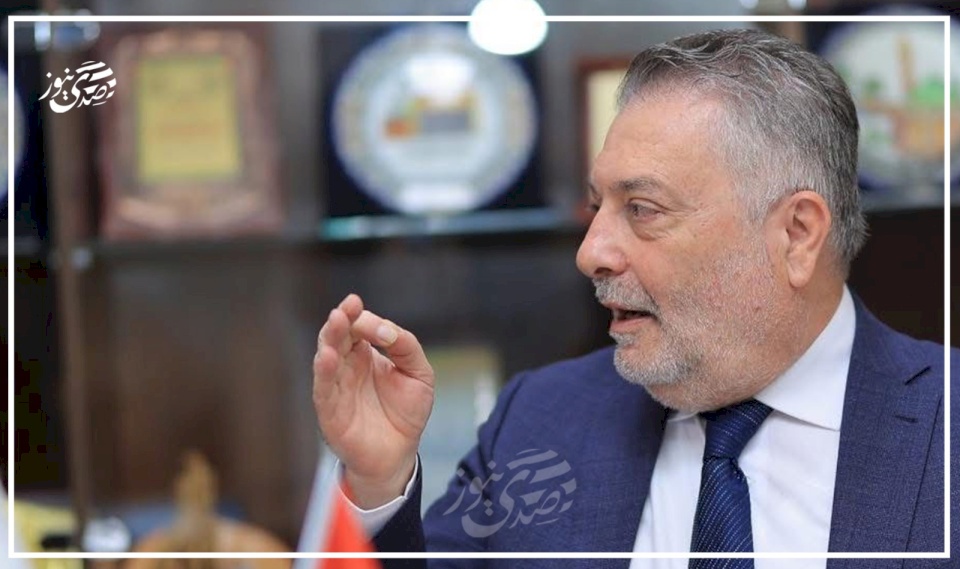
Economic Jerusalem: A City Resisting with Empty Pockets
Amid the tumult of political debates, economic Jerusalem is absent from the media spotlight, despite the complexities it harbors that deserve attention. Jerusalem, with its religious and national symbolism, is experiencing a silent economic crisis, where occupation intersects with restrictions, the Palestinian reality meets with helplessness, and the Jerusalemite citizen faces daily struggles.
For years, the city has been subjected to a "slow swallowing" policy adopted by the occupation, not only through arms but also through economic tools. Heavy taxes, rising municipal fees, and tightening regulations on trade and real estate have made Jerusalem one of the most expensive cities to live in the region. In contrast, the ability of Palestinian institutions to play a parallel role in providing services or financial support has diminished, leaving the Jerusalemite alone in the field, paying more than they earn, and trying to stay in their city at any cost.
Market Suffocation and the Erosion of the Private Sector
The Jerusalemite private sector has not been immune. Traders face daily pressures: from repeated closures to arbitrary municipal violations, shop demolitions, and unfair competition from supported Israeli companies. Despite this harsh reality, many business owners continue to hold on, not just for livelihood but to preserve the Palestinian economic character of the city.
In the heart of Jerusalem, the Old City reflects the magnitude of the economic deterioration. According to the Jerusalem Chamber of Commerce and Industry, the area contains about 2,000 Palestinian shops, including 450 souvenir shops, restaurants, and small stores. Since the outbreak of the recent war, more than half of these shops have been completely or partially closed, which means a gradual emptying of the economic identity of the area. Those remaining shop owners are facing a collapse in revenues, which in some sectors, such as tourism and handicrafts, has reached rates between 90% and 99%.
Young People with No Future .. Burdensome Unemployment
The Jerusalemite youth are paying a compounded price. Statistics indicate that the unemployment rate among the age group (15–24 years) is around 32%, one of the highest rates in Palestine. With the high cost of living and the rising costs of education and housing, the future appears bleak for Jerusalemite youth, especially in the absence of effective policies to create job opportunities or sustainable vocational training programs.
At the same time, Palestinian institutions operating in Jerusalem suffer from weak funding and stringent Israeli legal restrictions that obstruct their work. Nevertheless, some community initiatives continue their attempts to fill the gap, whether through student support funds, trader assistance, or vocational training programs.
The Jerusalem Economy Between Siege and Systematic Restriction
The economic challenge in Jerusalem is not limited to weak investment or lack of institutional support, but extends to daily material restrictions imposed by the occupying authorities on movement and trade. The military checkpoints surrounding the city create a real barrier for thousands of Palestinians from the West Bank entering Jerusalem, whether for work, shopping, or receiving services, which reduces demand and suffocates the local market.
According to a report by the Office for the Coordination of Humanitarian Affairs (OCHA), about 150 permanent checkpoints and inspection points are spread around East Jerusalem, making access to it a complicated and costly process.
In addition, Palestinian products face significant difficulties in reaching Jerusalem's markets due to complex Israeli permits and procedures. In contrast, supported Israeli products flood the Jerusalem markets and impose their prices on the citizens without fair competition. Local reports indicate that the cost of living in Jerusalem is about 25-30% higher than in cities in the West Bank, placing a heavy burden on Jerusalemites and pushing them toward silent poverty.
Sovereign Funds: An Absent Tool in the Battlefield
In light of this scene, an important question arises: What is the role of Palestinian sovereign funds in supporting Jerusalem's resilience?
These funds have a strategic ability to transform random support into productive projects that provide jobs and support the economic infrastructure of the city. What is required is not just pumping money but directing it along two paths:
1. Mobilizing financial support allocated for Jerusalem through partnerships with Palestinian investors in the diaspora, and regional and international funding networks.
2. Creating real job opportunities in the sectors of trade, tourism, education, and culture to compensate for the void resulting from the displacement or closure of Palestinian institutions.
Towards a Unique Economic Vision for Jerusalem
Jerusalem needs a clear national economic vision that takes into account its uniqueness and overlapping challenges. This vision should include:
● Establishing a permanent national fund to support traders, students, and institutions in Jerusalem.
● Stimulating investments in promising sectors: tourism, culture, education, and technology.
● Activating partnerships between Jerusalemite institutions and the Palestinian financial sector to provide facilitated financing.
● Empowering youth through sustainable training and employment programs.
While international policies are lax in politically protecting Jerusalem, the economic battle remains a space of no less importance. The resilience of Jerusalemites in their city cannot continue with minimal support. The city is standing today with empty pockets, but it will not remain so forever unless the tools of confrontation change.

Gaza Committee: Legitimacy Challenges and the Palestinian Vision

Gaza: An Opportunity to Reorder the Palestinian House

Take Him and Restrain Him

Will America Strike Iran? An Extensive Reading of Regional and International Conflict

Netanyahu and the Second Phase: Between Halting Progress and the Test of the Palestinian R...

Ukraine in European Calculations: Managing the Conflict Rather Than Engaging in It

Is There Any Point in the Continued Existence of the Palestinian Authority?!

